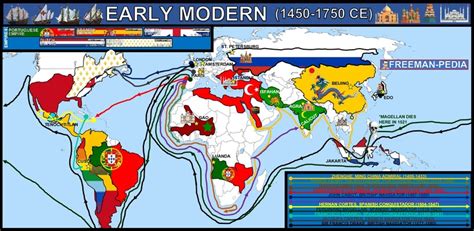Introduction
Spanning five centuries, the Atlantic World encompasses a vast and interconnected region that has witnessed profound transformations and the intertwining of diverse cultures. This article delves into the complexities of this extraordinary historical tapestry, exploring the key themes and currents that have shaped its trajectory.

Iberian Exploration and Colonialism
The Atlantic World emerged in the 15th century, sparked by Iberian explorations. The Portuguese and Spanish sought new trade routes to the East, leading to the discovery of the Americas. Colonialism ensued, as European powers established colonies in the New World, displacing indigenous populations and introducing their own systems of governance and economy.
The Transatlantic Slave Trade
One of the most defining features of the Atlantic World was the transatlantic slave trade. Millions of Africans were forcibly transported to the Americas to work as enslaved labor on plantations and other industries. The slave trade had a devastating impact on African societies, while enriching European colonizers and fostering the growth of the Atlantic economy.
Clash of Civilizations
The Atlantic World was a melting pot of different cultures, often resulting in clashes of civilizations. European colonizers imposed their own values and institutions on indigenous populations, leading to resistance and conflict. However, there was also cultural exchange and intermixing, giving rise to new syncretic traditions and identities.
The Rise of the United States
In the 18th century, the British colonies in North America declared independence and formed the United States. The new republic rapidly expanded westward, acquiring vast territories and becoming a major economic and political force. The United States’ involvement in the Atlantic World had a profound impact on its development and global affairs.
Abolition and Emancipation
The transatlantic slave trade faced growing opposition in the 19th century. Abolitionist movements gained momentum, leading to the abolition of the slave trade and, eventually, slavery itself in most of the Americas. The emancipation of enslaved people brought about significant social and economic changes.
The Age of Revolutions
The Atlantic World witnessed a series of revolutions that reshaped its political landscape. The Haitian Revolution (1791-1804) was the first successful slave rebellion in the Americas, establishing the independent nation of Haiti. The American Revolution (1775-1783) led to the creation of the United States, while the Latin American Wars of Independence (1810-1825) resulted in the liberation of most Spanish colonies in the New World.
The Atlantic Economy
The Atlantic World was characterized by a complex and interdependent economy. Trade in goods, services, and capital flowed across the ocean, connecting Europe, Africa, and the Americas. The Atlantic economy played a crucial role in the growth and prosperity of these regions, but also led to economic inequalities and exploitation.
The 20th Century and Beyond
The 20th century witnessed further transformations in the Atlantic World. Decolonization movements gained momentum, leading to the independence of many African and Asian colonies. The Atlantic economy continued to evolve, with the emergence of globalization and the rise of multinational corporations. Today, the Atlantic World remains a dynamic and interconnected region, grappling with issues of inequality, climate change, and global cooperation.
Conclusion
The Atlantic World is a testament to the interconnectedness of human history and the transformative power of interaction between different cultures. From Iberian exploration to the transatlantic slave trade, from revolutions to the rise of the United States, the Atlantic World has shaped the destinies of millions. Understanding its complexities offers valuable insights into the present and future of our globalized world.
Tables
Table 1: Key Figures in the Atlantic World
| Figure | Role |
|---|---|
| Christopher Columbus | Explorer, Discoverer of the Americas |
| Hernán Cortés | Spanish Conquistador, Conquered Mexico |
| Simón Bolívar | Leader of Latin American Independence |
| Frederick Douglass | Abolitionist, Writer |
| George Washington | First President of the United States |
Table 2: Transatlantic Slave Trade
| Period | Estimated Number of Slaves Transported |
|---|---|
| 16th Century | 300,000 |
| 17th Century | 1,500,000 |
| 18th Century | 2,500,000 |
| 19th Century | 1,000,000 |
Table 3: Revolutions in the Atlantic World
| Revolution | Years | Outcome |
|---|---|---|
| Haitian Revolution | 1791-1804 | Establishment of Independent Haiti |
| American Revolution | 1775-1783 | Creation of the United States |
| Latin American Wars of Independence | 1810-1825 | Liberation of Most Spanish Colonies in the Americas |
Table 4: The Atlantic Economy
| Sector | Value in 1800 (USD Millions) |
|---|---|
| Trade in Goods | 2,000 |
| Trade in Services | 500 |
| Capital Flows | 1,000 |
